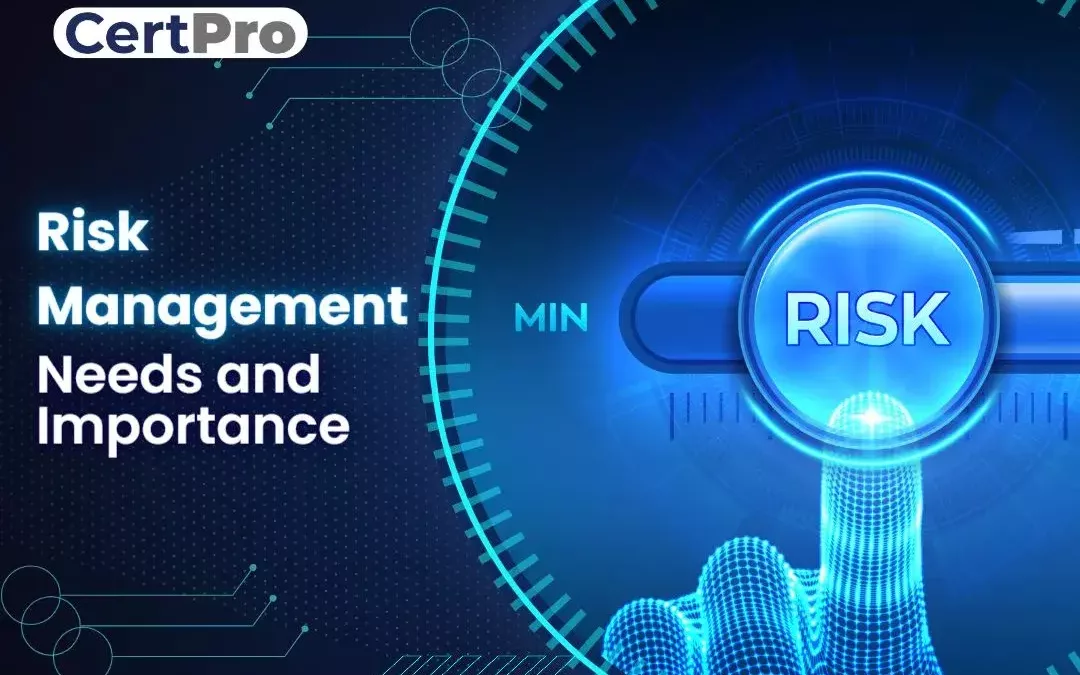Exploring the Growing Importance of Risk Management in Business Strategy
Exploring the Growing Importance of Risk Management in Business Strategy
Blog Article
The Relevance of Comprehending the Value of Risk Management in Various Industries

The Core Idea of Risk Management and Its Purpose
Risk Management, the keystone of several sectors, pivots on the recognition, evaluation, and mitigation of uncertainties in an organization setting. By appropriately determining prospective threats, companies can establish methods to either avoid these risks from occurring or minimize their impact. As soon as dangers have been identified and examined, the mitigation procedure entails designing techniques to minimize their potential influence.
Advantages of Carrying Out Risk Management in Service Procedures

Unveiling the Role of Risk Management in Different Industries
While every market faces its distinct collection of dangers, the application of Risk Management techniques remains a common measure in their search of sustainability and growth. In the health care sector, Risk Management requires guaranteeing person security and information protection, while in financing, it involves mitigating financial investment risks and ensuring governing conformity (importance of risk management). Building business concentrate on worker safety, task hold-ups, and budget overruns. In the modern technology market, business reduce cybersecurity hazards and technology obsolescence. Eventually, the function of Risk Management throughout industries is to determine, examine, and minimize threats. It is an important element of strategic planning, enabling organizations to safeguard their possessions, make the most of chances, and attain their goals.
Real-life Situation Studies Showing Successful Risk Management
To understand the importance of Risk Management in these many industries, one can aim to a number of real-life instances that illustrate the effective application of these procedures. For example, in the power market, British Petroleum created Risk mitigation prepares post the 2010 Gulf of Mexico oil spill. They carried out better safety treatments and stricter regulations which significantly lowered additional accidents. In a similar way, in financing, Goldman Sachs successfully navigated the 2008 economic situation by identifying prospective mortgage-backed safety and securities risks early. Last but not least, Toyota, publish the 2011 earthquake in Japan, modified its supply chain Management to decrease disturbance threats. These instances show how markets, gaining from dilemmas, successfully applied Risk Management methods to lower future threats.
Future Fads and Developments in Risk Management Techniques
As the world remains to evolve, so also do the trends and advancements in Risk Management strategies. Fast improvements in modern technology and data analytics are improving the Risk landscape. Huge data and AI are currently crucial in predicting and minimizing threats. Organizations are leveraging these devices to construct anticipating versions and make data-driven choices. Cybersecurity, when an outer worry, has actually catapulted to the center of Risk Management, with methods concentrating on reaction, detection, and avoidance. The assimilation of ESG (Environmental, Social, Administration) variables right straight from the source into Risk Management is another growing pattern, showing the boosting acknowledgment of the role that ecological and social dangers play in company sustainability. Thus, the future of Risk Management hinges on the blend of innovative modern technology, innovative methods, and an all natural approach.
Conclusion
In final thought, understanding the importance of Risk Management across a spectrum of markets is crucial for their longevity and prosperity. Ultimately, effective Risk Management contributes to more resilient and sustainable businesses, highlighting the value of this technique in today's very affordable and vibrant company setting.
While every sector challenges its special set of risks, the implementation of Risk Management strategies continues to be a common in their quest of sustainability and growth. In the health care industry, Risk Management requires making sure client internet safety and security and information security, while in finance, it involves mitigating investment threats and making certain regulative compliance. Ultimately, the function of Risk Management across sectors is to recognize, assess, and minimize threats. These situations demonstrate just how industries, my review here finding out from situations, properly applied Risk Management approaches to lower future dangers.

Report this page